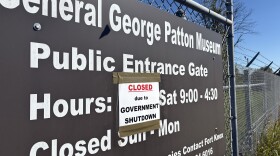Listen NowFilmmakers are making more films outside of Hollywood thanks to state tax incentives. More than 40 states are offering big film industry tax credits and Kentucky could be next. WFPL’s Elizabeth Kramer reports.Kentucky has had its share of movies set and filmed in the Bluegrass state from the 1980 film “Coal Miner’s Daughter” to Cameron Crowe’s “Elizabethtown” in 2004.That same year, Lexington hosted the making of “Dreamer,” a story about an unlikely horse to go to the Breeders Cup. But the final filming was in Louisiana. There filmmakers are able to get tax credits of up to 25 percent as well as credits on employment taxes for local hires. The Louisiana film office reports that last year film projects sought tax credits for more than $500 million.Other states followed suit. New Mexico offers a 25 percent rebate. Last year, Connecticut began offering a 30 percent tax credit. And last month, an Indiana law offering credits of up to 15 percent took effect.Kentucky hasn’t passed legislation yet, although bills offering incentives have been introduced in the General Assembly since 2005. In April, a bill died in the House when its chair, Rep. Harry Moberly, declined to call it for a vote.Lights Camera Kentucky is the group that lobbied for the bill. It formed last year when Louisville resident Merry-Kay Poe began meeting with people who had worked on films and documentaries.While the next General Assembly is months away, group members still meet around the kitchen table at Poe’s St. Matthews home. She and Tamara Lee discuss how to approach legislators."As we meet with them either in the halls of the capitol building, in the capitol annex, down in the cafeteria, wherever we can talk to them or if we can get actual formal meetings," says Poe."Well, we always say things like it’s a clean green industry," Lee says. "It’s jobs for all Kentuckians, not just one specific county because the locations can be everywhere."Their main message is that these incentives can boost economic development. But those in the filmmaking industry caution that incentives are not enough. Kathleen Courtney works for the Producers Guild of America."What makes a state competitive is twofold. One is the incentive. The other is the infrastructure, meaning: What kind of crew do you have? Do you have equipment houses? Do you have stages? Do you have film labs?" Courtney says. "All the things that will save the filmmaker money because you don’t have to bring it from the outside."Poe and her cohorts say they want legislation that works to develop that infrastructure as well.While proponents cite economic figures to support their ideas, these programs have run into unintended drama. Bribery charges, misappropriated credits and charges of favoritism have plagued some film offices.Most of the criticism comes from tax watchdog groups like the Tax Foundation. The organization’s Joe Henchman says efforts to appease the film industry undermine the free market system."There’s an argument that 'Well, it’s sort of free money,'" Henchman says. "That ignores the fact that A) The company might have already moved into the state anyways, so you are losing that tax revenue; and B) That company being there is costing the state taxpayer something. All the services that are provided roads, police, courts — these all come at a cost, and a company uses these resources."Henchman says they these initiatives take time and resources from legislators when they could be working on other endeavors that have bigger benefits.Governor Steve Beshear’s office says it is working on a package of tax incentives that the commonwealth could offer the film industry and plans to unveil it before Kentucky legislators convene in January for the next General Assembly.
© 2025 Louisville Public Media
Public Files:
89.3 WFPL · 90.5 WUOL-FM · 91.9 WFPK
For assistance accessing our public files, please contact info@lpm.org or call 502-814-6500
Public Files:
89.3 WFPL · 90.5 WUOL-FM · 91.9 WFPK
For assistance accessing our public files, please contact info@lpm.org or call 502-814-6500
Play Live Radio
Next Up:
0:00
0:00
Available On Air Stations




